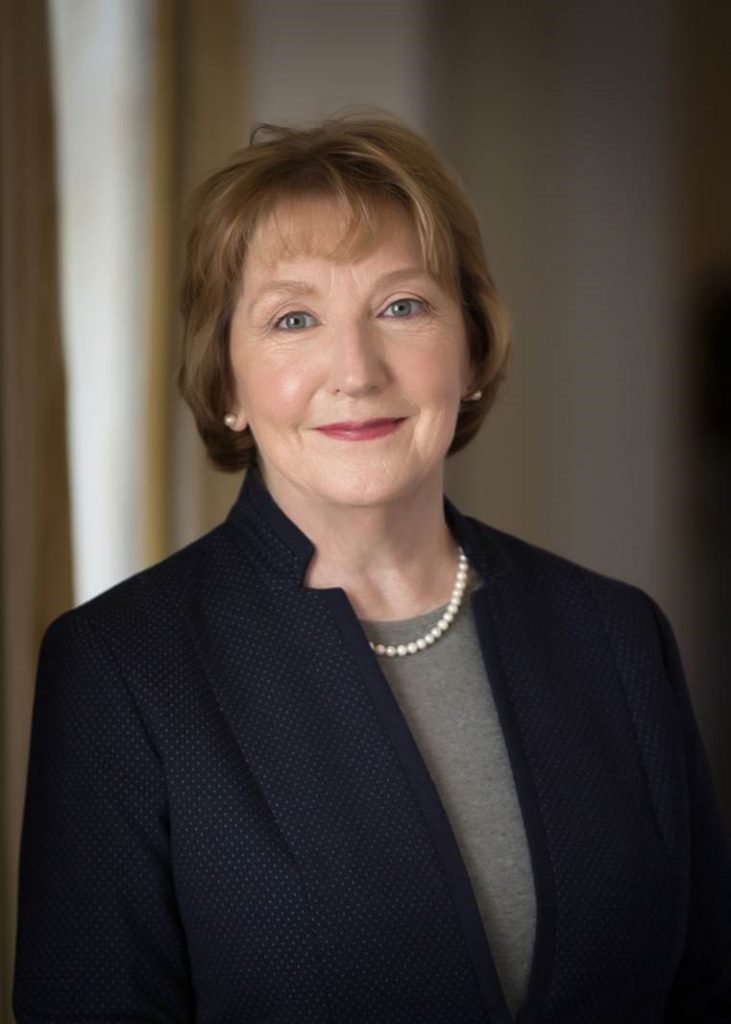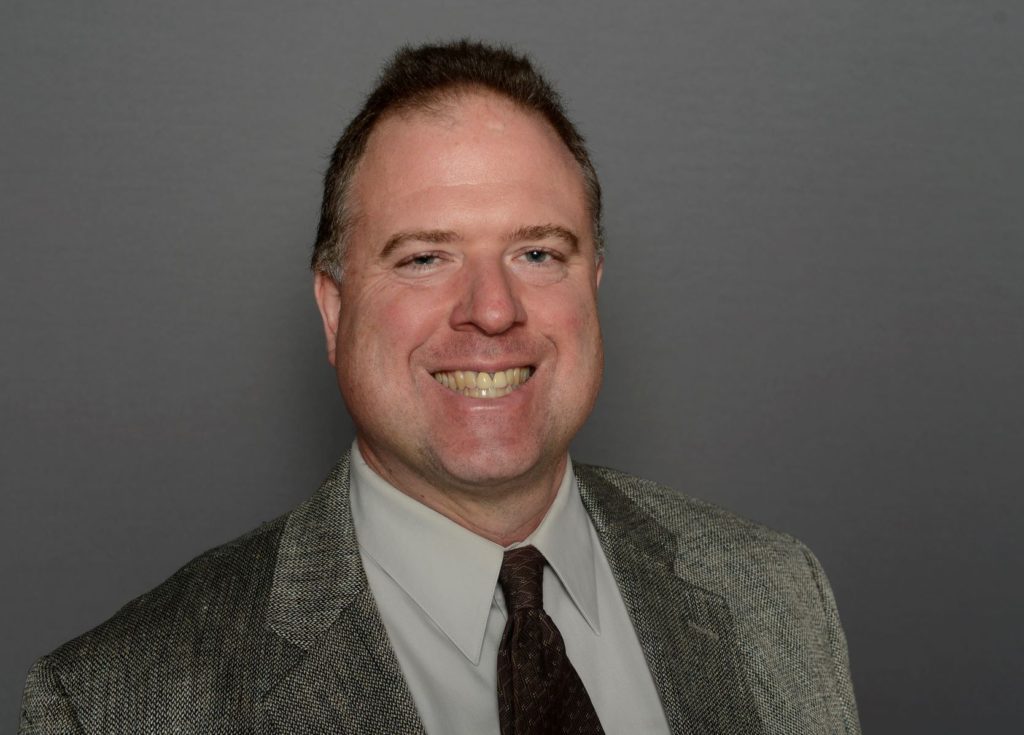A Talk with Columnist Eileen McNamara, Who Helped Set a Legendary Investigative Series in Motion
By Steve Aust
NSNC Executive Director
Spotlight is on Nteflix. The a 2015 film starring Michael Keaton, Mark Ruffalo, Rachel McAdams, and Liev Schreiber chronicles the heroic work The Boston Globe’s Spotlight investigative team performed in unearthing the sexual abuse perpetrated by priests within the Boston Archdiocese of the Catholic Church. Eileen McNamara, a columnist at the Globe, helped set the wheels of Spotlight’s investigation in motion through July 2001 columns she wrote about the trial of the Rev. John Geoghan, a confessed serial pedophile, for a 1991 incident where he inappropriately fondled a boy in a pool. Geoghan was found guilty of indecent assault and battery in January 2002 and sent to prison. “Mac,” as she likes to be called, reflected on her editorials and their impact.

How many years have you been a columnist? What drew you into that line of journalism?
I was a reporter – at the Danbury News Times, UPI, and The Boston Globe – for 20 years before The Globe offered me the position as a Metro columnist. I would not have wanted to assume that role a day before I did. My reporting experience grounded my opinion writing and gave me confidence that, after years of covering crime and social services and politics in Boston and Washington, I had something to say.
What do you think are the hallmarks of a successful op-ed piece?
A clear point of view, articulately and concisely rendered, supported by reams of independent reporting.
To clarify, what trial precipitated the first op-ed that spurred the Spotlight team?
It was the case of the Rev. John Geoghan, a serial child molester repeatedly transferred by the Church to cover up his crimes. A letter making clear that Cardinal Bernard Law had ignored warnings about Geoghan from a bishop for more than a decade had emerged in civil proceedings while Geoghan was simultaneously under criminal indictment. Here is the column that appeared the day before Marty Baron’s first day at work as the new editor of The Globe:
(Editor’s Note: To provide context, this column appeared the following week, and is included at her request:
What did you hope to accomplish with that first editorial?
To prompt public outrage that Law repeatedly had not only put children in harm’s way, he had lied about it over and over again. It was clear to many of us that Geoghan was not an isolated case, that the church had a systemic problem. We had written about each case as it emerged for a decade, but we had never dug deep enough to uncover the conspiracy of silence that was at the heart of this scandal.
In what ways did the Catholic Church wield its influence in Boston politics and culture?
There was a culture of deference when it came to the Catholic Church in Boston. Every community has its sacred cows but, in Boston, the Catholic Church loomed larger than most institutions. Legislative leaders in the Massachusetts State House did the church’s bidding, opposing abortion rights, gay marriage, and right-to-die legislation. Many of those lawmakers were “Triple Eagles,” Catholic men who had attended Boston College High School, Boston College, and Boston College Law School. Many of the city’s cops were Irish Catholics, as were many of its judges. It was not just the clergy that turned a blind eye to the abuse of children by priests, so did the cops and the courts. The judge who sealed the personnel records of the Church from public scrutiny was a former seminarian. But it was also an Irish Catholic judge – a woman – who ruled in favor of The Globe when the paper filed suit to open those records.
In what ways did having an outsider like Marty Baron at The Globe’s helm put greater impetus on The Globe unearthing the scandal?
It was the critical factor. His predecessor in the editor’s chair, Matt Storin, was a graduate of Notre Dame who was a regular at the Cardinal’s annual garden party. He balked whenever I wrote critically about Law – and I did for years before this scandal. I wrote about his refusal to pay pensions to priests who had left the church to work with the poor or in civil rights, and his decision to close the only freestanding maternity hospital in Boston that was in the neighborhood with the highest infant mortality rate. To be fair, the readers did not like those columns, either. They thought the columns were disrespectful to the Cardinal and that I was a “self-hating Catholic.” (Like almost everyone else at the Globe who reported on this story, I was raised Catholic, including 12 years of parochial schooling, but I have not considered myself a Catholic since I graduated from high school.) The public’s attitude changed completely after the Spotlight series. It is not easy to accept that the leaders of the church you love betrayed you.
How accurately do you think the movie portrays the real events? What, if anything, did it miss?
The writers spent hours interviewing all of us and the movie reflects that attention to detail. There is one composite character but it’s a movie, after all. And I wish they had not suggested that two brilliant reporters – Steve Kurkjian and David Armstrong – failed in earlier attempts to get to the heart of this scandal. They did great work in the ’90s on this. It just was not easy to get. As evidence? The Globe doubled the size of the Spotlight team and spent more than $1 million on legal fees to produce that series.
What role do you think the media has in supporting and strengthening democracy?
If not us, who? It is central to the mission of journalism to hold those with power – in and out of government – accountable for their actions. We are not avenging angels, but neither are we enemies of the people. A self-governing democracy cannot function if the electorate does not have the facts to make informed decisions. It is our job to find those facts, verify them and publish them.
Imagine that the allegations of priest abuses were coming to light now. As society has seemingly become more tribal and fragmented over the last 10-15 years, do you think such an investigation would be as impactful today?
I do. I still have some of the letters readers wrote to me in the 1990s, promising to pray for me because of the “hate” they felt I harbored for the Catholic Church. But I also have the rosary beads and the First Communion booklet sent to me by a 90-year-old woman thanking me and my colleagues at The Globe for telling the truth about the Church, painful as it was to read. We’ve been locked in tribal battles in this country since the days of Jefferson and Adams. But the truth has a way of emerging even when the public isn’t always ready to hear it. And this story is not over. The Vatican still has not cleaned house or fully embraced those victimized by its priests.
In your work with students at Brandeis, how would you say that their attitudes about news and media have changed from when you were a student?
Too many of them scoff at the idea of impartiality. Journalists are not objective, I tell them; the journalistic process is. But too often they confuse the sin of “false balance” – giving climate change deniers equal status with scientists – with what good journalists do. False balance is laziness. Serious journalists know there are not two sides to every story; there are probably 10. Our job is to get as close to the truth as the available facts will let us, knowing that every story is evolving in real time and we never know everything at any given moment.
A (sometimes excessively) proud graduate of the University of Georgia’s Grady College of Journalism, Steve Aust has approximately two decades of storytelling experience: as a writer and editor at ST Media Group, which has covered the sign industry since 1906 with Signs of the Times Magazine and www.signsofthetimes.com; as the marketing manager for Cima Network, a national sign company, and, most recently, as a freelance writer and editorial consultant. Steve assumed the role of Executive Director of NSNC on August 1, 2020, and is proud to uphold its mission of supporting columnists and other serial content providers. To see examples of Steve’s work, click here.


